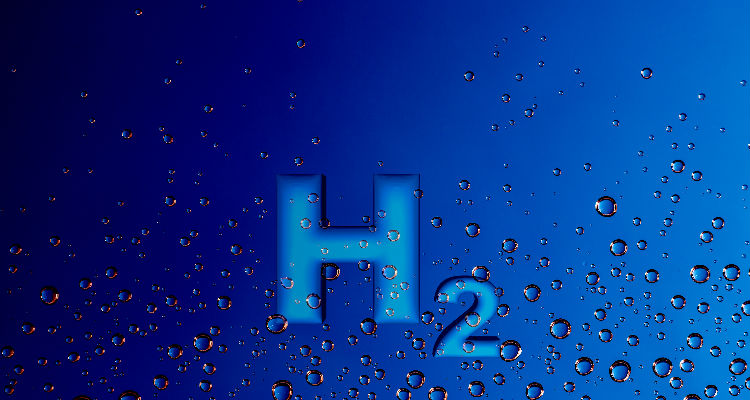Thyssenkrupp has signed a realization agreement with gas transmission system operators Nowega, OGE and Thyssengas to connect its Duisburg steel plant in Germany to the GET H2 hydrogen pipeline network in 2028 as it seeks to decarbonize its operations.
The GET H2 pipeline project plans to connect green hydrogen production hubs with industrial consumers in the Lower Saxony and North Rhine-Westphalia regions.
“With this contract, the hydrogen economy in North Rhine-Westphalia and Germany continues to take shape,” the companies said in a statement March 21.
The 135-km pipeline network between Lingen and Gelsenkirchen will be extended to the Duisburg steelworks via a 40-km link from Dorsten. GET H2 in turn will link to the planned national hydrogen pipeline network.
Thyssenkrupp is looking to move to hydrogen-based steel production, and is to construct a 2.5-million mt/year direct reduction iron plant to replace the four blast furnaces at Duisburg. First production is scheduled from the end of 2026, avoiding up to 3.5 million mt/year of CO2 emissions.
The direct reduction plant will reduce iron ore pellets to sponge iron using hydrogen, with natural gas in the interim.
In February, Thyssenkrupp issued a tender to purchase up to 151,000 mt/year of renewable and low-carbon hydrogen under 10-year contracts, with lower volumes starting from 2028, for pipeline delivery to the Duisburg steelworks.
The steelmaker will seek an expected 104,000 mt of hydrogen in 2028, rising to 143,000 mt/year over 2029-35 before reaching 151,000 mt/year over 2036-37 as it seeks to decarbonize the plant.
The gas TSOs are to convert existing gas pipelines between Vlieghuis in the Netherlands and Kalle and onward to Ochtrup to transport hydrogen and connect to the GET H2 pipeline system by 2027, with the Duisburg plant connected in 2028.
Thyssenkrupp said previously that as sufficient green hydrogen would not be available when the plant starts, it plans to use natural gas when the DRI plant is commissioned, with blue hydrogen acting as a bridge before renewable production ramps up.
Platts, part of S&P Global Commodity Insights, assessed the cost of producing hydrogen via alkaline electrolysis in Europe at Eur4.46/kg ($4.85/kg) March 20 (Netherlands, including capex), based on month-ahead power prices. Proton exchange membrane electrolysis production was assessed at Eur4.90/kg, while blue hydrogen production by steam methane reforming (including carbon, CCS and capex) was Eur2.34/kg.
The contract between Thyssenkrupp and the gas TSOs regulates the hydrogen pipeline conversion and construction, as well as rights and obligations of the partners until the start of operations.
Thyssenkrupp steel decarbonization
Thyssenkrupp Steel is the largest flat steel manufacturer in Germany, producing around 11 million mt/year of crude steel.
The company aims to cut CO2 emissions by over 30% by 2030, targeting climate neutrality across all its sites by 2045.
In July, the European Commission approved a German Eur550-million direct grant and conditional payment mechanism of up to Eur1.45 billion to support ThyssenKrupp Steel Europe in decarbonizing its steel production and accelerating renewable hydrogen uptake.
Europe-based buyers have started to show greater interest in carbon-accounted steel. Platts assessed Northwest European hot-rolled carbon-accounted coil down Eur5 on the day at Eur800/mt ex-works Ruhr March 20.
GET H2 network
The GET H2 network consortium also includes BP, RWE and Evonik.
In September, RWE produced the first hydrogen at its test electrolyzer in Lingen for a pipeline transport and storage trial.
The 250-kW high-temperature solid oxide electrolyzer from manufacturer Sunfire will produce up to 7 kg/hour of hydrogen for the GET H2 TransHyDE project, which will test hydrogen pipeline transport and storage from 2024.
RWE plans to start up a larger 14-MW pilot electrolyzer plant for industrial-scale production at Lingen in the coming months. The 14-MW plant will test the use of two electrolyzer technologies, pressurized alkaline and proton exchange membrane, which RWE is considering for future projects.
It also received construction and operation approval for the first two 100-MW electrolyzer plants of its 300-MW GET H2 Nukleus project in Lingen in September.
The 200-MW plant will produce up to 35,000 mt/year of green hydrogen for industrial decarbonization.
And in October, OGE and Nowega began work to convert the first 46-km section of pipeline from the OGE compressor station in Emsburen to Bad Bentheim in Lower Saxony and on to Legden in North Rhine-Westphalia for hydrogen use.
The conversion will see the pipeline sections separated from the gas network after which upgrade measures for the transport of hydrogen will begin. The pipeline would then be ready to flow hydrogen from 2025.
Author: James Burgess, james.burgess@spglobal.com, Annalisa Villa, annalisa.villa@spglobal.com






